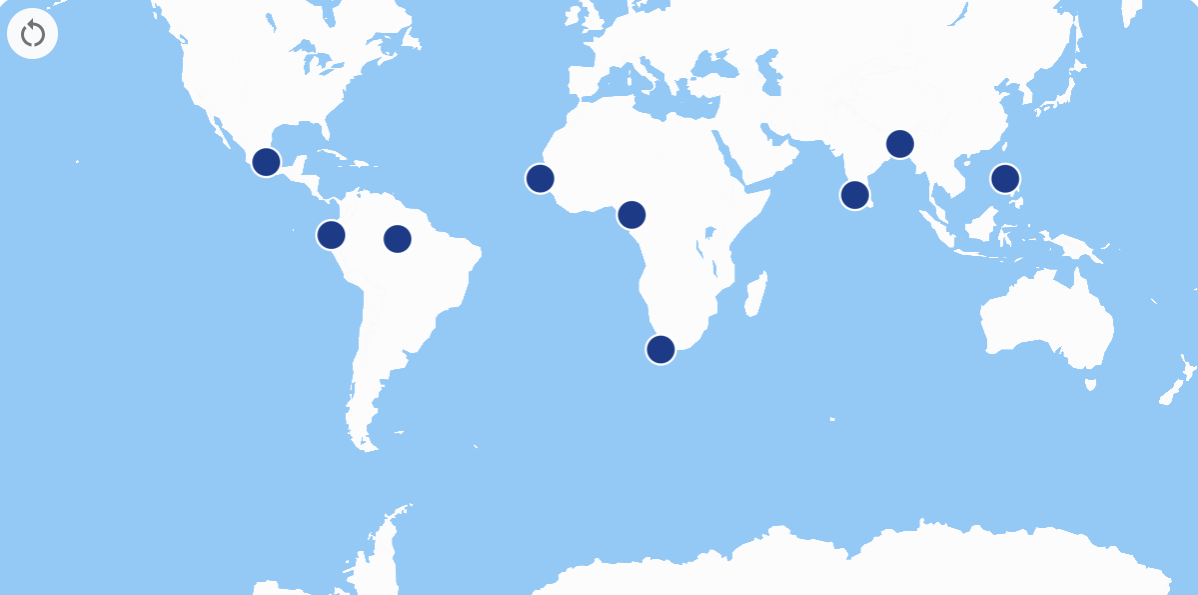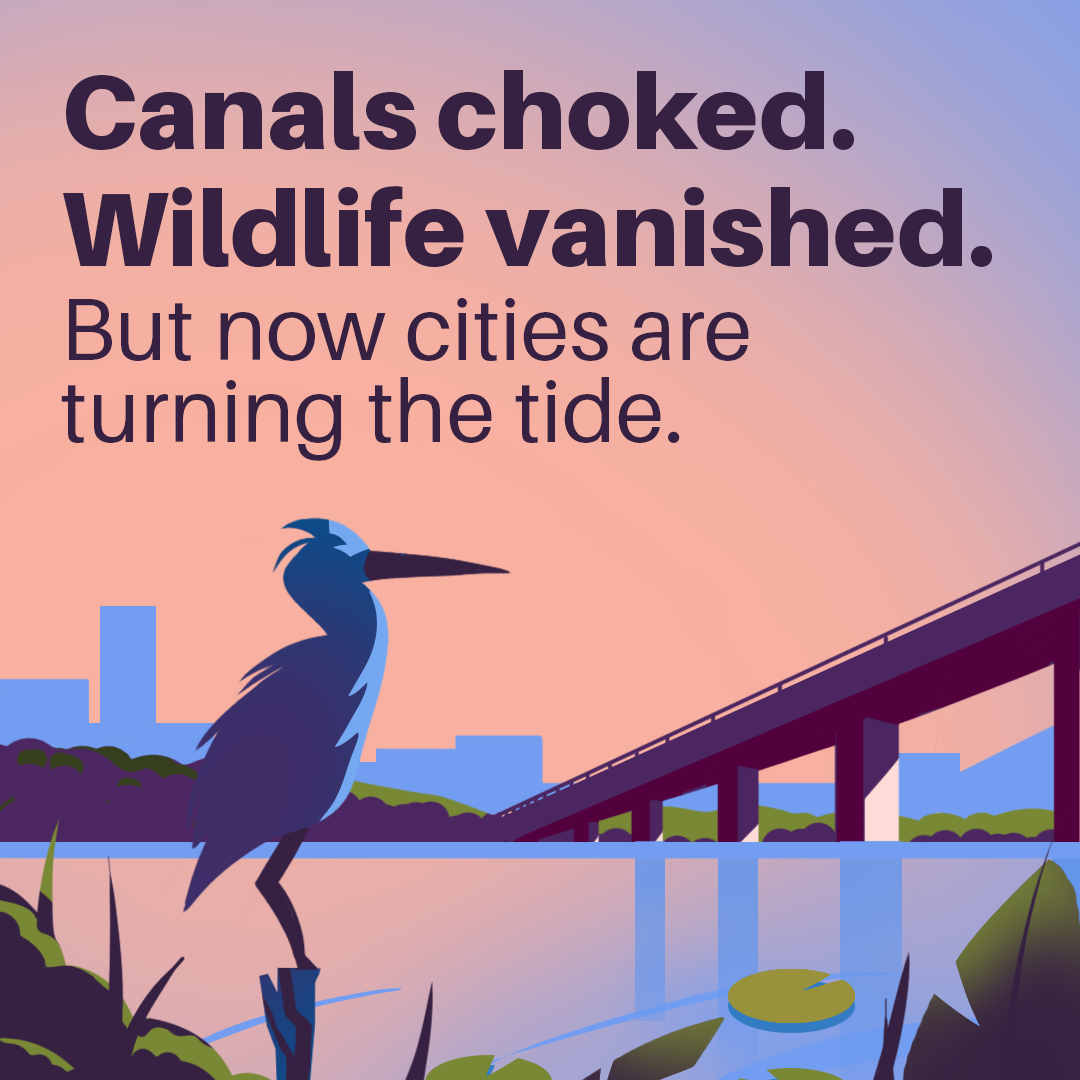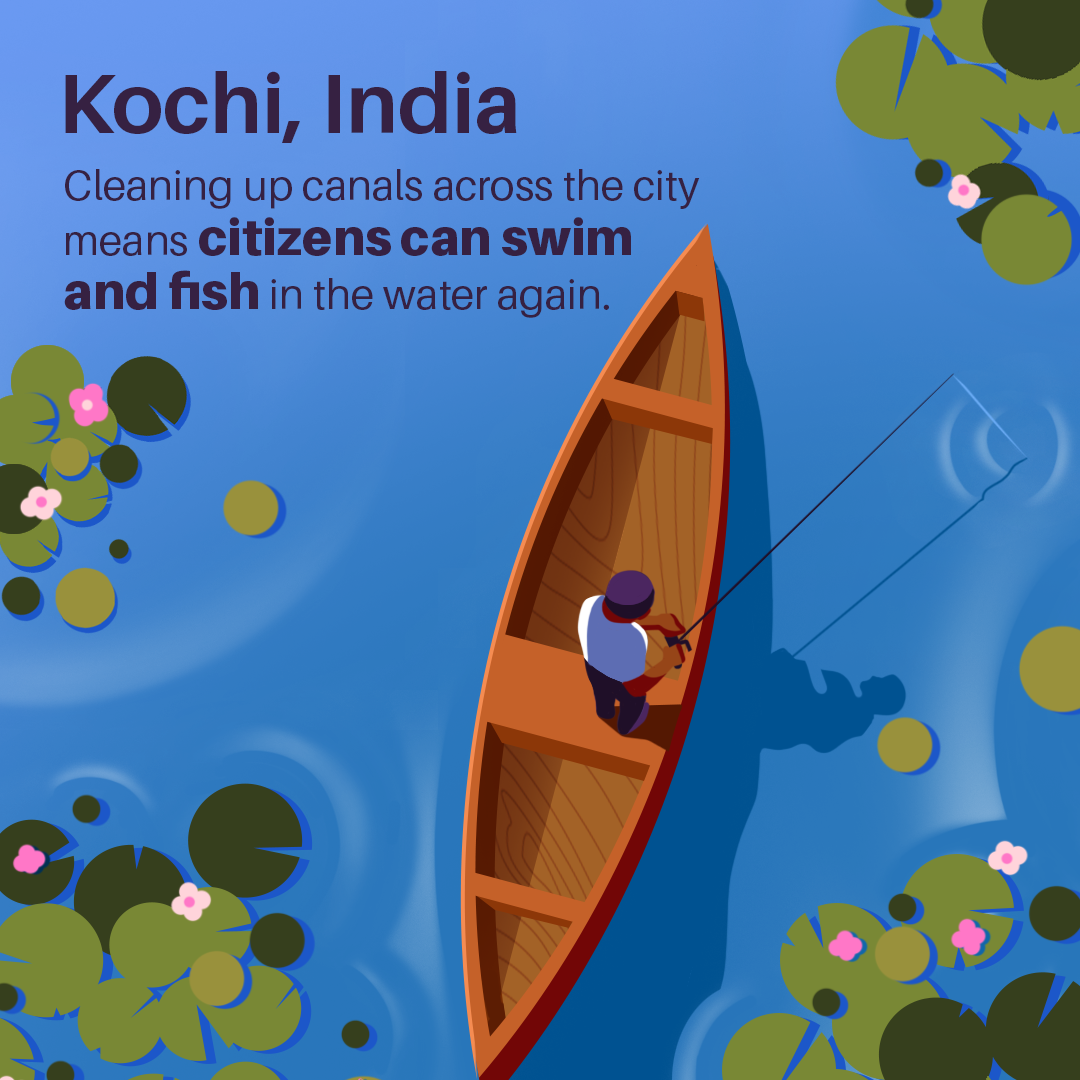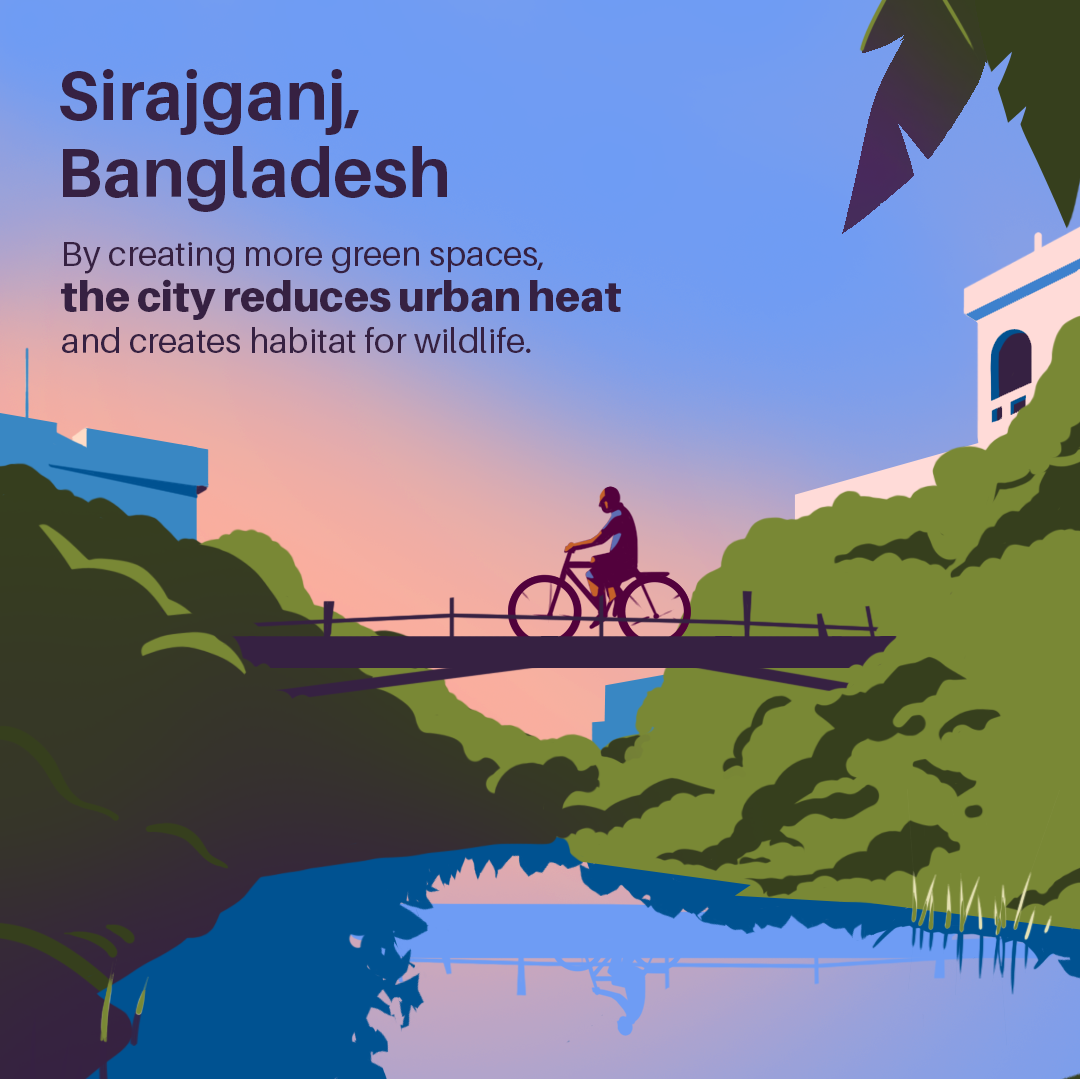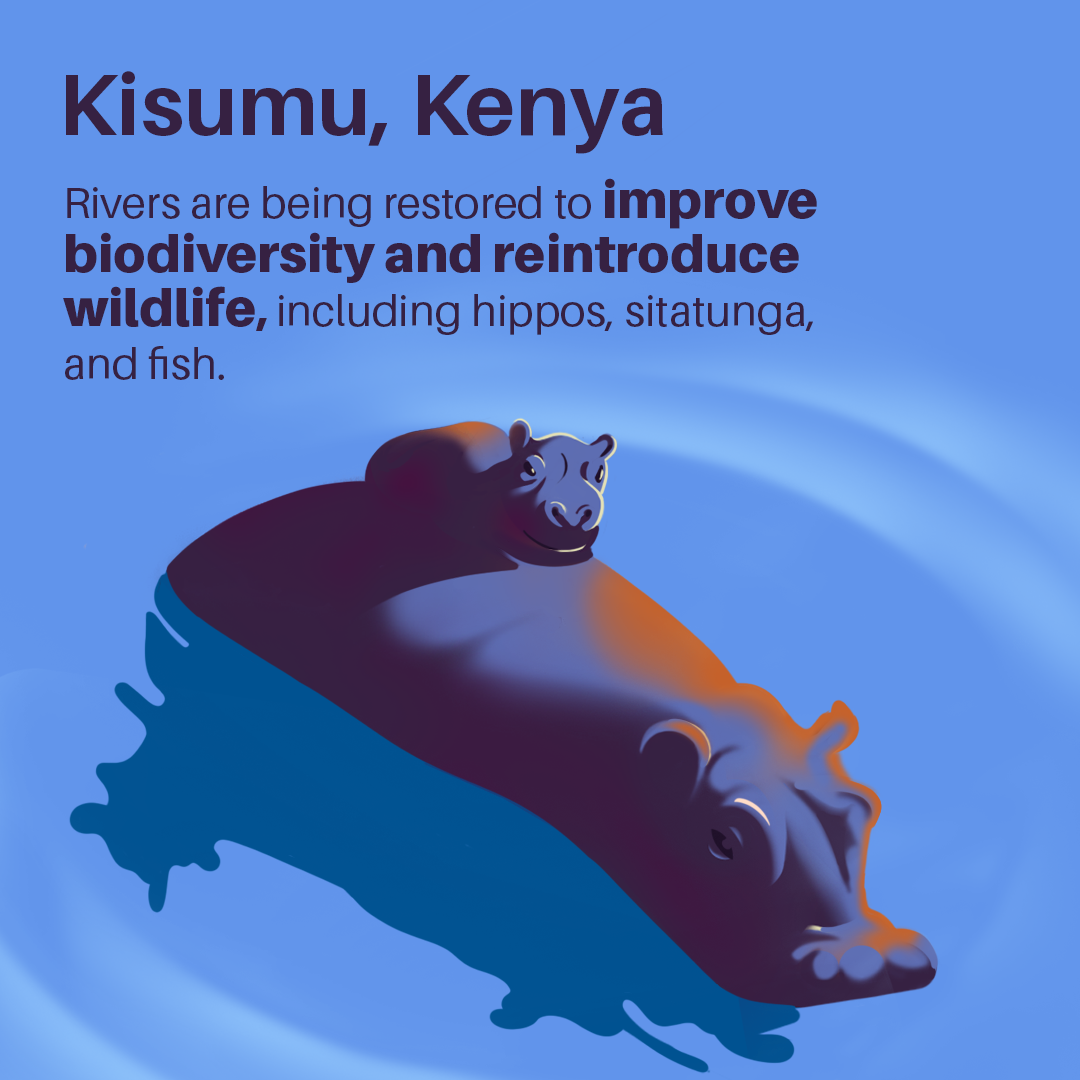Cities are both drivers of ecosystem degradation and vulnerable to it. Urban areas occupy less than 1 per cent of the Earth’s land surface but house more than half of its people. Despite their steel and concrete, crowds, and traffic, cities and towns are still ecosystems whose condition profoundly marks the quality of our lives. Functioning urban ecosystems clean our air and water, cool urban heat islands, and support our well-being by shielding us from hazards and providing opportunities for rest and play.
However, through a process of rapid and unplanned urbanization, humans have been transforming the natural world and creating new realities, where cities are removed from natural environments. Left unchecked, urbanization has devastating impacts on natural ecosystems, which in turn negatively affect the well-being of urban populations. Today, urban areas consume 75 percent of global resource and energy use, produce more than half of the planet’s waste, and at least 60 percent of its greenhouse gas emissions.
Adopting nature-based solutions at the urban level to protect, conserve, and restore these degraded ecosystems, and mainstreaming the landscape scale in urban planning are key to reconnecting cities with nature and mitigating the impact of climate change on urban communities.
.jpg)

_0.jpg)
_1.jpg)
_1.jpg)
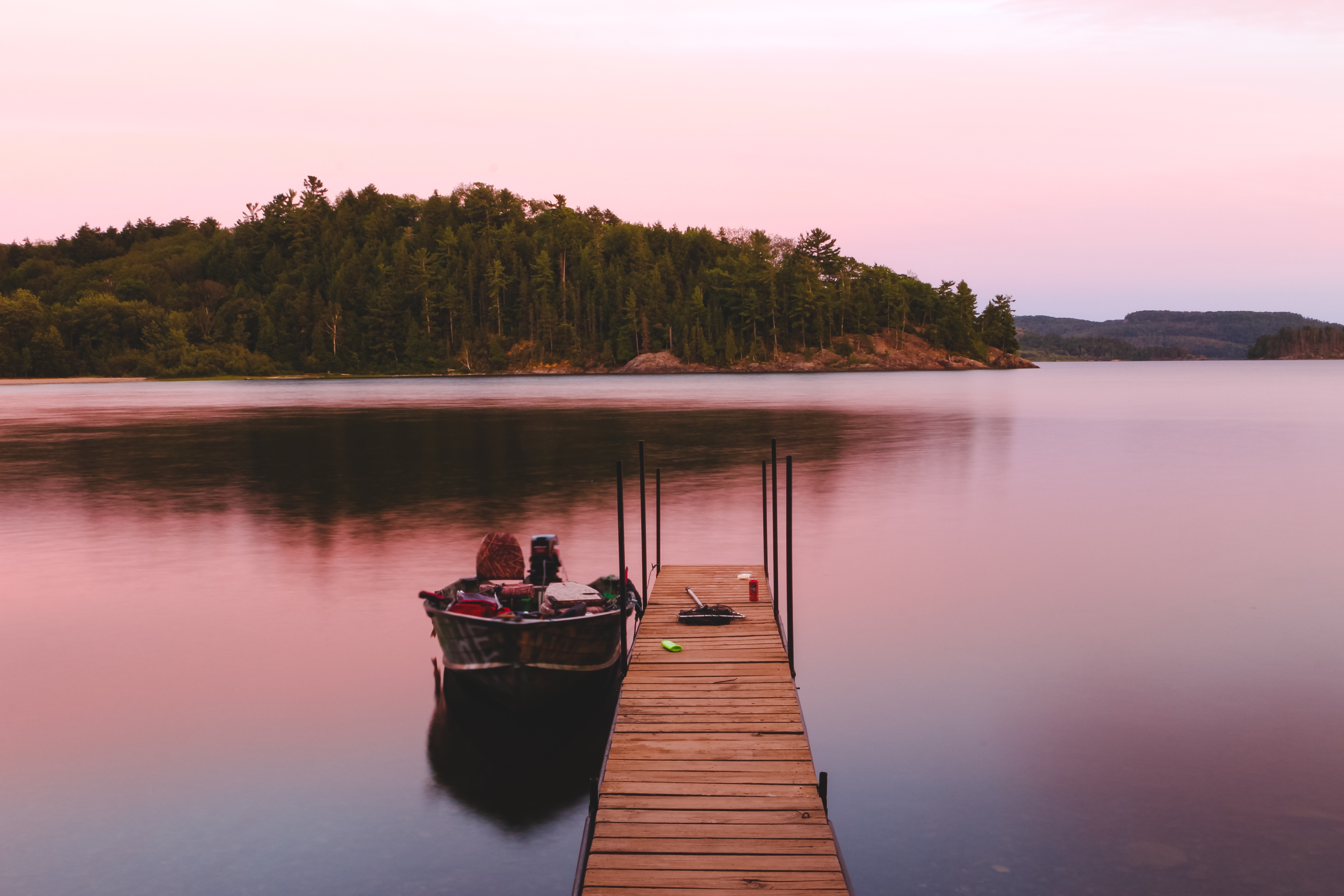
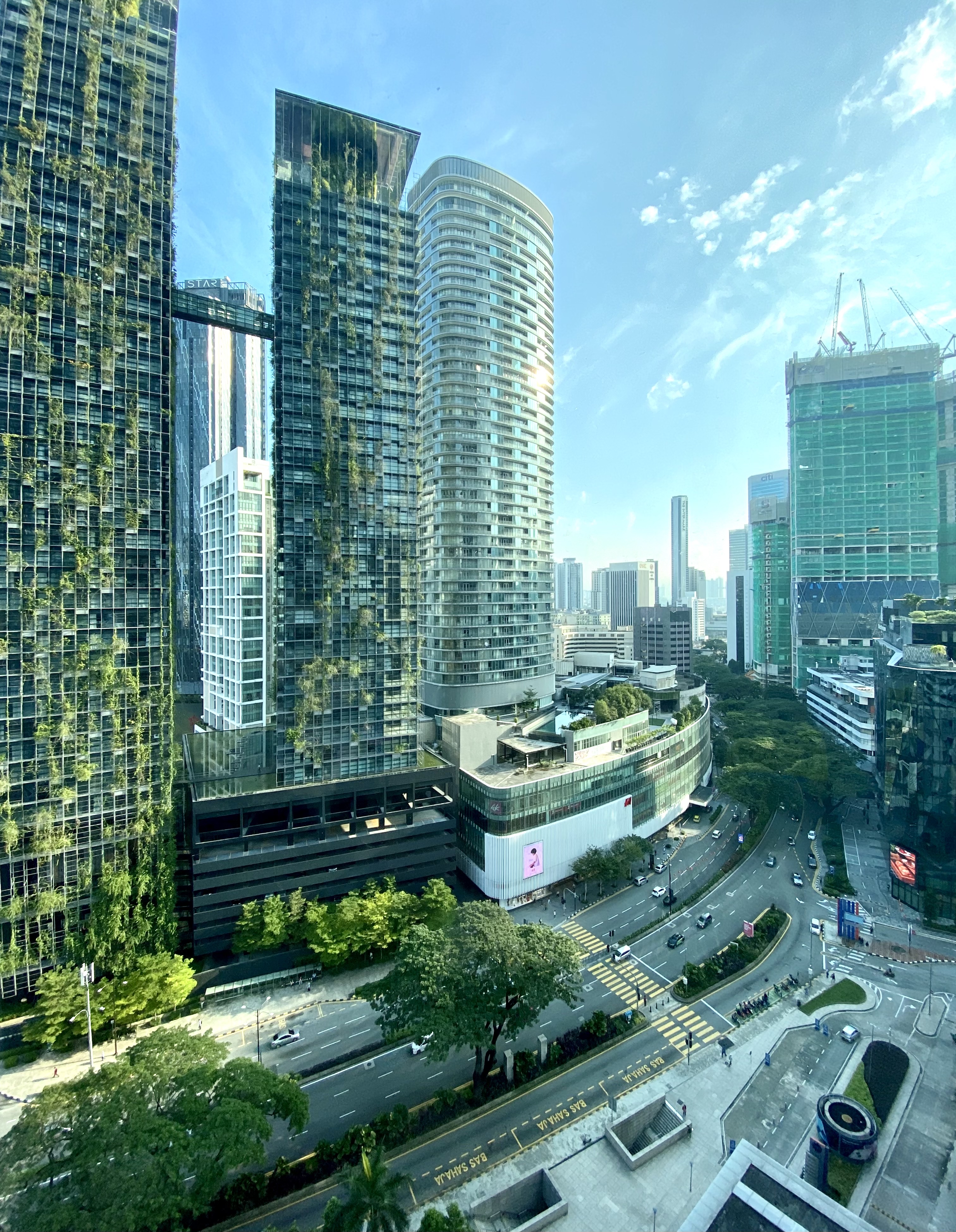
.jpg)
